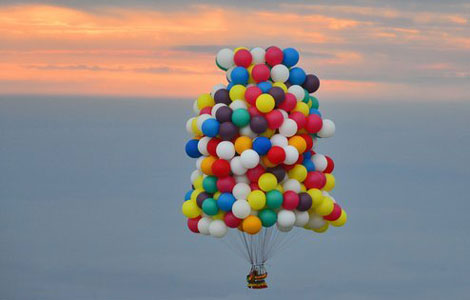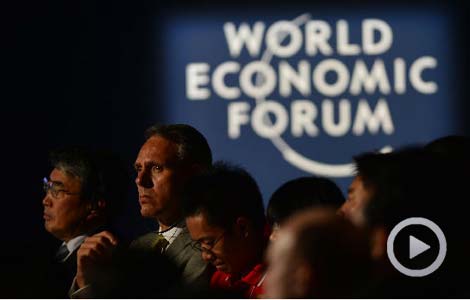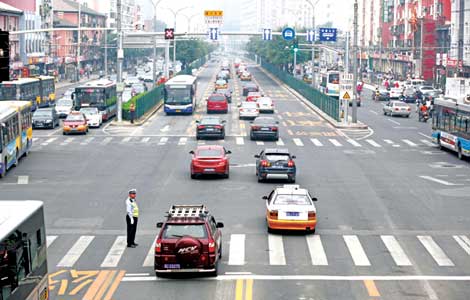Parents support stricter rules on children's books
Updated: 2013-09-14 02:10
By Yang Yao (China Daily)
|
||||||||
Experts say publishers are driven by profits, call for classification system
Both parents and publishers welcomed a government's notice calling for stricter supervision over children's publications and looked forward to more detailed regulation and enforcement.
A circular, released by the central government on Thursday, called for stricter supervision to filter obscene and violent content in reading material for children, in both print and digital media.
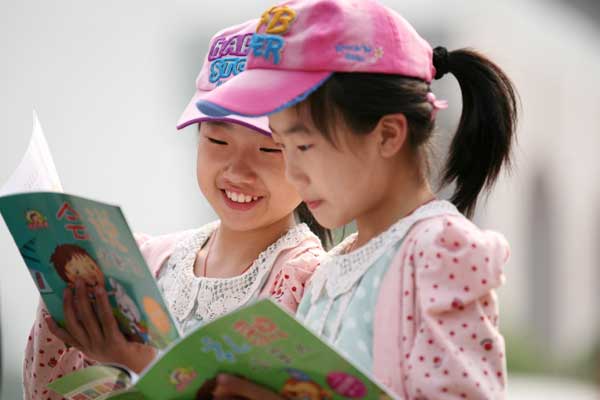 |
|
Two students enjoy reading at a bookstore in Nanjing, Jiangsu province. The central government released a circular calling for stricter supervision over children's publications to filter obscene and violent content. Wang Xin / for China Daily |
"The children's publications market has been thriving with many quality works that boost healthy development, but problems also exist, such as shoddy quality, improper content and overly high prices," said the document, which was jointly released by five departments, including the Ministry of Education.
Zhao Ping, a children's publishing industry insider in Shanghai, said that the children's book market displays a sharp contrast in quality.
"The profit in children's books is still prominent, compared with other types of publications," she said. "Print is dying, but children's books are still popular. Many profit-driven publishers rush into the market without the slightest consideration of quality."
Zhao gave an example of her current project, saying that there are more than 10 Chinese versions of Charlotte's Web by different publishers.
"The translation quality varies widely," Zhao said.
Cao Xiaoping, a primary school teacher in Nantong, Jiangsu province, echoed Zhao's opinion, saying that children's literature is now not much different from mainstream literature.
Cao said that comic and anime books display the worst content. "There is vulgar content in them, with cursing, violence and even obscenity," she said.
"It is good to see the pledge for stricter supervision," she said. "But we also hope to see policies or market incentives to boost quality so that the children can really benefit from reading."
As access to the Internet is easier than ever before, children have larger exposure to unfiltered content online and on various digital products, which has worried parents a lot.
"One click could destroy a child's mind," said Wang Fuming, a father with a 7-year-old son in Beijing.
He is in support of the policy, but shows concern of how to regulate online content, especially those targeted at children.
Experts have suggested introducing a classification system.
Fang Weiping, a professor with Zhejiang University, said that a classification system for children's publications could help sort out the chaos.
In Western countries, efforts to improve book content largely rely on parents' organizations, libraries or schools, said Zhao, children's publishing expert. "Government should also encourage civil organizations to discern the quality of children's readings."
In November, the first China International Children's Book Fair will be hosted in Shanghai. The event, with approval of the General Administration of Press and Publication, is dedicated to the copyright trading, publishing, printing and distribution of books for children up to 16 years old.
"I hope the book fair will help improve publishing quality and introduce more high-quality literature for Chinese children," Zhao said.
Most Viewed
Editor's Picks

|
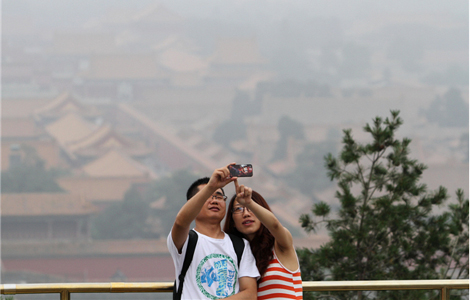
|

|

|

|

|
Today's Top News
Al Qaeda calls for attacks inside United States
China's ICBC set to expand in Canada
Florida college joins push for ties with China
China supports trade ties: Michigan governor
Markets hold breath over Chinese cotton policy
Economist calls for global Marshall Plan
'Green Fence' puts pressure on US recyclables
One in four men in Asia-Pacific admit to rape
US Weekly

|

|


